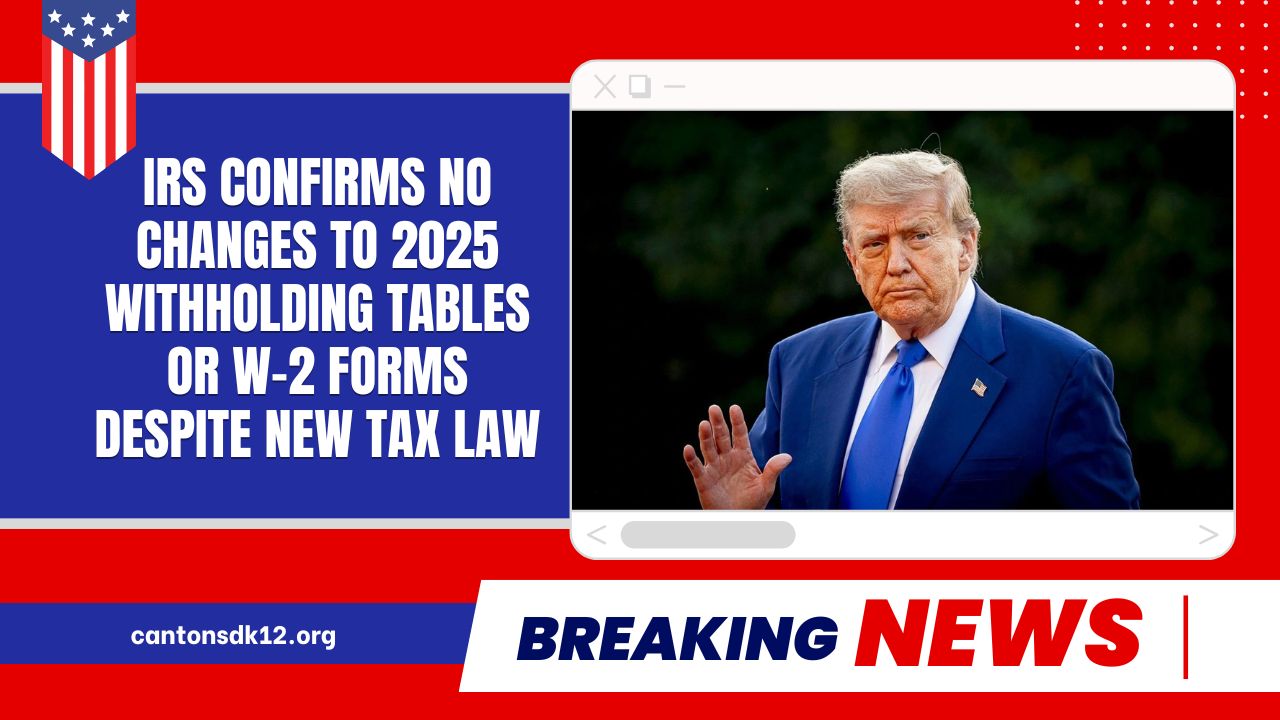For taxpayers and payroll professionals alike, clarity is key—especially amidst sweeping tax reforms under the One Big Beautiful Bill Act (OBBBA).
The IRS has stepped in with timely guidance: for Tax Year 2025, there will be no changes to withholding tables or major forms like the W-2, 1099, or Form 941.
This move provides crucial consistency during a complex transition year, ensuring businesses and employees stay on track while future updates are being prepared.
Why the IRS Held Steady on Key Tax Documents
The IRS cited two main reasons for maintaining the status quo:
- ** voorkomen disruption**: Abrupt changes could complicate payroll systems and tax filings during a busy season.
- ** Smooth implementation timeline**: Delaying revisions gives businesses, software providers, tax experts, and IRS operations time to adjust effectively—without creating chaos.
This phased approach aligns with previous transition strategies, reinforcing continuity while the agency develops necessary updates for 2026 and beyond.
Confirmed 2025 Tax Procedures—At a Glance
| Form or Process | Status for 2025 |
|---|---|
| Form W-2 | No changes—continue current format |
| Forms 1099 / Form 941 | Remain unchanged for tax year 2025 |
| Withholding Tables | Use existing federal income tax tables |
| Payroll & Reporting Procs. | Continue current procedures without adjustment |
Payroll departments and employers can proceed using established systems, knowing changes won’t disrupt the current tax cycle.
How This Affects Taxpayers and Payroll Teams
Because new provisions under OBBBA—including deductions for tips, overtime, and senior citizens—are effective starting in 2025, taxpayers might anticipate shifts in how their paychecks are taxed. However:
- Employers shouldn’t change withholding procedures this year.
- Pay mentioned deductions are still retroactively claimable—but only when filing your 2025 return in 2026.
- The IRS will issue further guidance and updated forms for 2026, including how to report tips, calculate deductions, and adjust withholding accordingly.
Obstacles and Strategic Implications
Although the consistency provides needed stability, the lack of immediate form or withholding updates may initially confuse taxpayers attempting to claim new benefits mid-year. Examples include:
- Tip deductions—some workers may expect less tax taken out, but until form formats change, employer payroll will continue tax as usual.
- Overtime pay adjustments—employers should continue standard withholding despite new tax relief.
- Senior deductions—taxpayers must wait to claim them on 2025 returns, not at payroll.
The IRS’s decision to hold off on adjusting withholding tables and major tax forms for 2025 delivers much-needed clarity—ensuring a smooth filing season even as new provisions under the One Big Beautiful Bill take effect.
While taxpayers will have to adapt through their 2025 tax return, payroll and employer operations can continue smoothly using existing forms and rules.
Stay tuned for the IRS guidance release heading into 2026 to prepare for the next wave of implementation.
FAQs
Why didn’t the IRS update withholding tables for 2025?
To avoid disruption during tax season and provide a smooth transition amid sweeping tax code changes, the IRS postponed updates to withholding tables and forms until 2026.
Can I still claim new deductions for tips or overtime even though withholding didn’t change?
Yes—these are retroactive deductions. While payroll withholding remains unchanged in 2025, you’ll be able to claim the new benefits when filing your 2025 tax return, typically in early 2026.
When will new forms reflecting OBBBA changes become available?
The IRS has confirmed that updated forms and instructions—including changes for W-2s, withholding tables, and filing procedures—will roll out for Tax Year 2026.




